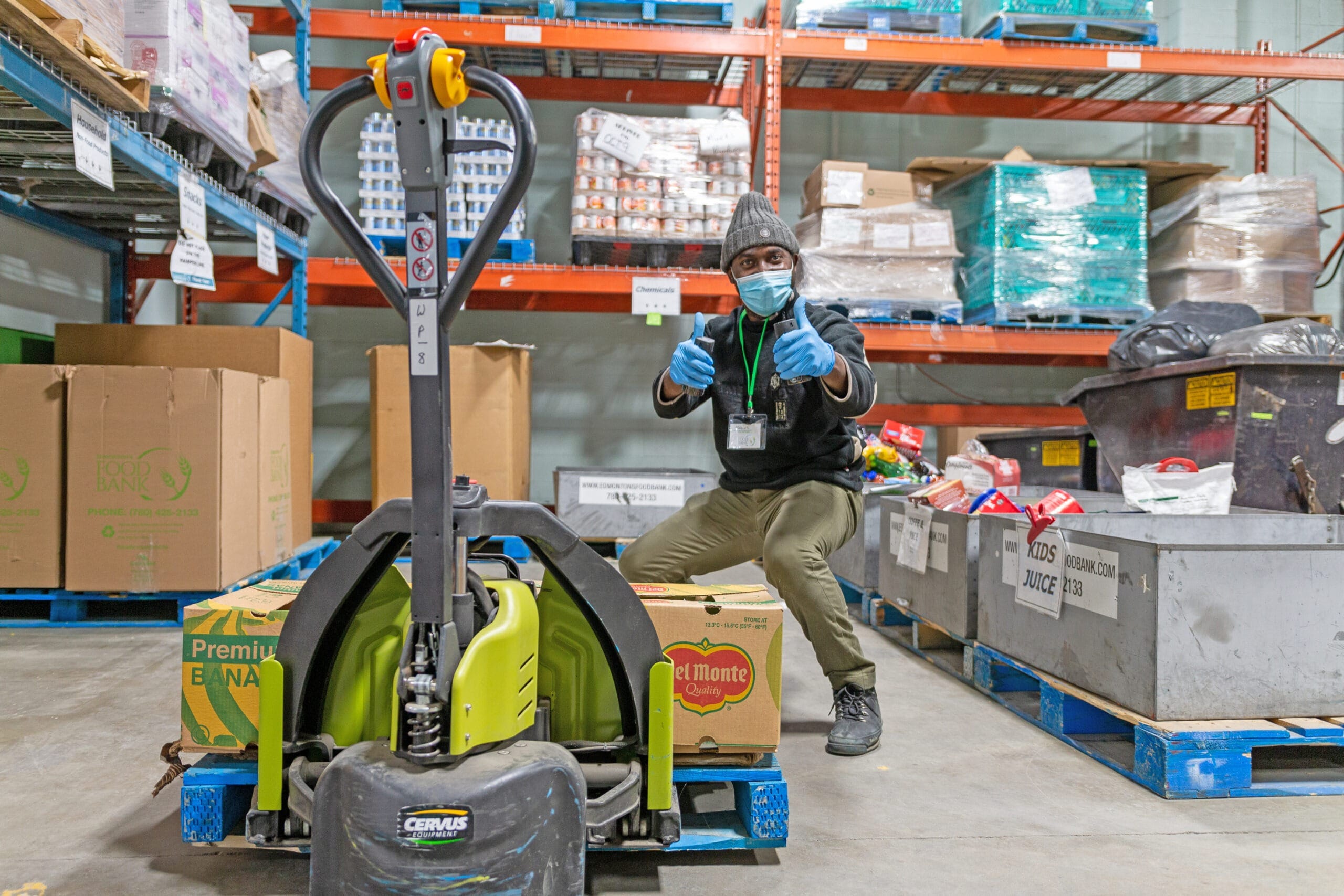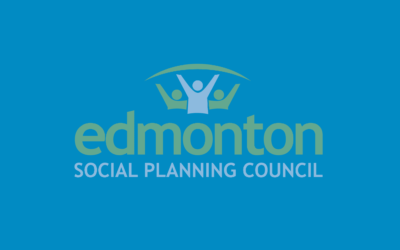Blog: National Food Bank Day

By Edmonton’s Foodbank
The Edmonton Gleaners Association, which is better known as Edmonton’s Food Bank, was formed in 1981. The original mandate of the organization was to “glean” or gather surplus food from the food industry including stores, producers, farmers, food warehouses, and other suppliers. This food was turned over to soup kitchens, shelters, and other organizations providing free food to people in need.
From the beginning, the Food Bank saw itself as an association that would work collaboratively with, and on behalf of, a network of social service agencies and churches regarding gleaning, food drives, and client referral. The organization saw itself as a mechanism in the community to reconcile competing food drives, eliminating unnecessary program duplication, while encouraging broad community participation.

While thousands of people do access services directly from us, Edmonton’s Food Bank is a central warehouse providing food to over 300 agencies, churches, schools, and food depots providing a comprehensive range of food programs and services helping people in need in Edmonton. In June 2022, almost 35,000 people received a hamper from Edmonton’s Food Bank or one of its affiliates – this is the highest number of people served through hamper programs since the forming of the organization.
The Food Bank offers a variety of different services including different types of food hampers. A hamper is comprised of one or more boxes of food that a family takes to their home and prepares. Hamper contents vary depending on products that are donated, specific dietary needs (like diabetic or celiac) or cultural requests. Hampers can have added product like baby formula or diapers. Hampers are prepared by the Food Bank or one of our affiliated agencies. We also work with specific groups to modify or make specific food hampers like the Edmonton Police Service (EPS) emergency packs or Islamic Family & Social Services Association (IFSSA).
Concerning bulk food for meal & snack programs, this food is accessed by schools, soup kitchens, and shelters. Examples of these partners include Hope Mission, Operation Friendship, Boys & Girls Big Brothers Big Sisters, Boyle Street, The Mustard Seed, The Family Centre, Jasper Place Health and Wellness Centre, and about 60 schools.
Over the years, the Food Bank has developed programs that assist people “Beyond Food”. The Beyond Food program is done in collaboration with other community agencies and provides wrap around support and services to those experiencing poverty and food security. These services include access to academic upgrading, safety tickets to increase employment opportunities, interview and resume preparation and more.

Edmonton’s Food Bank often also speaks about food security and its link to income security.
As is the case with most food banks, Edmonton’s Food Bank challenges the notion that food on its own will reduce poverty. There is a moral dimension to hunger and we must all be committed to enhancing the health and well-being of others. After all, food is not a realistic substitute for policies that help vulnerable Canadians enter the work force, or access to adequate income support, and affordable housing that enables low-income people to live with dignity.
After 40 years of experience, the Food Bank believes that the active gleaning and utilization of salvageable food is a good thing. As our society looks at recycling and efficient use of what it produces, our organization has been a leader in what is now a larger societal trend.
It is our position as an organization that we must continue to recover and use food, serve those living in poverty, provide sustainable alternative programming, advocate for change, and strive for excellence in all we do.

